Mississippi Today
Yazoo City: Home to two Super Bowl stars and so much football history
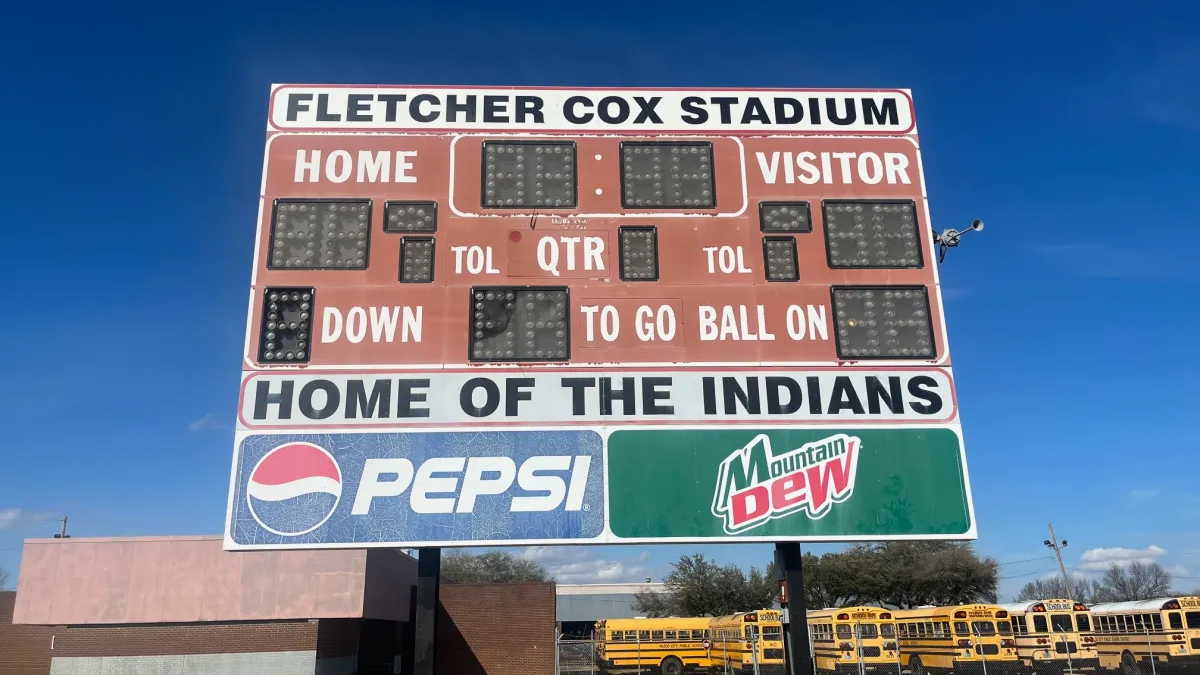
Yazoo City: Home to two Super Bowl stars and so much football history
YAZOO CITY – Today we take a football-themed tour of Yazoo City, birthplace and hometown of defensive tackle Fletcher Cox and running back Kenneth Gainwell, who will play for the Philadelphia Eagles in Sunday’s Super Bowl.
That’s right: This little town of about 10,000 residents on the southeastern edge of the Mississippi Delta produced two of the 96 players who will dress out for a game that will be watched by about 100 million viewers around the world.
Cox played at Yazoo City High, while Gainwell, a distant cousin, played at Yazoo County High, about eight miles south of town.

This seems an absolutely perfect time for this tour. Our guide is Yazoo City High School athletic director Tony Woolfolk, who played for the Yazoo High Indians, the Alcorn State Bravesand later was Cox’s high school coach. We are to meet at the high school. But first, I drive into town on Jerry Clower Boulevard, named for the famous, countrified comedian, who before becoming famous, played tackle for Mississippi State. Clower once told me, “You remember when ol’ Showboat Boykin scored seven touchdowns in one Egg Bowl for Ole Miss? Well, he stepped right on my big belly when he scored the last one.”
I take a left off Clower Boulevard onto Willie Morris Parkway, named for the great Mississippi author, once a Yazoo City halfback. Willie Morris described his hometown as “half Delta, half hills, all crazy.” Crazy about football, that’s for sure. Willie once wrote a short story about high school football titled “The Fumble” and a book titled “The Courting of Marcus Dupree.” If you haven’t read the story or the book, you should. Willie often described himself as “Yazoo City’s other Willie” in deference to fellow Yazoo native Willie Brown, the Pro Football Hall of Famer and Oakland Raiders Super Bowl hero who died in 2019. Willie Morris would quickly tell you, “Willie Brown was only the greatest cornerback in football history.”
READ MORE: RIP Willie Brown, who never forgot Mushroom Street or Yazoo City
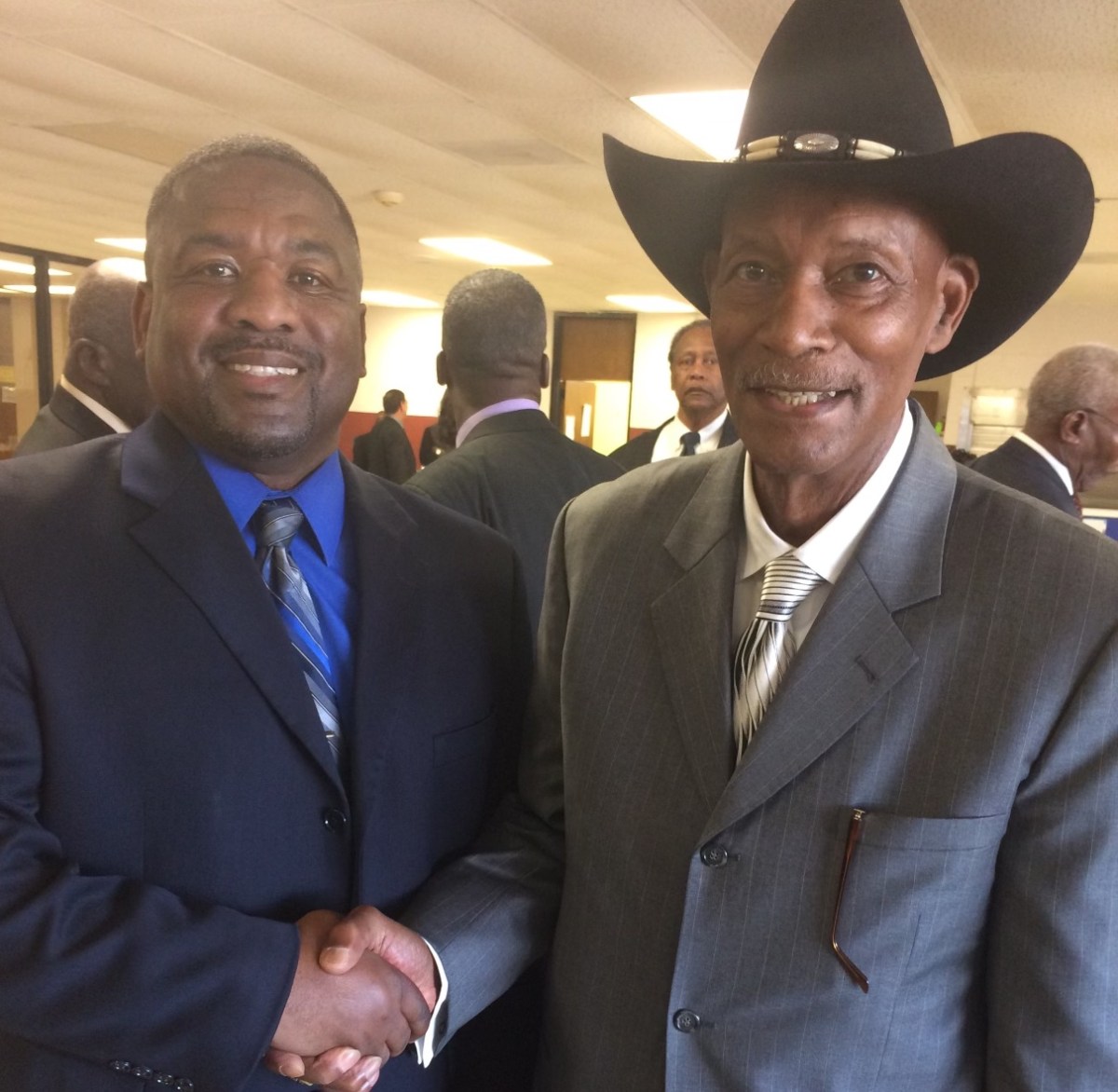
One more left turn gets us to the high school, where Woolfolk, a starting safety for the Alcorn Braves in the 1984 Alcorn-Mississippi Valley “Game of the Century,” is unloading soft drinks and snacks for that night’s basketball game. He knows a thing or two about Yazoo City football history.
First, Tony shows me the Yazoo High trophy case with literally hundreds of sports trophies and plaques, including one saluting 1968 Big Eight Conference Player of the Year Larry Kramer, once one of the most promising running backs in Mississippi history before injuries slowed him at Ole Miss. There’s another plaque that documents the retirement of Fletcher Cox’s red and white Indians jersey number 54. Asked about the first time he ever set eyes on Cox, Tony answers, “It was the summer after his eighth grade year. There were a bunch of kids out on the field playing ball and one of them was at least a head taller and a whole lot faster than the rest of them. I pointed and said, ‘Who is that kid?’ Somebody said, ‘That’s Bug-eye Cox.’”
Bug-eye?
“Yeah, that’s what everybody called him back then. His granny named him that because his eyes kind of bulged,” Tony says. “It stuck. Over time, I shortened it to Bug. I still call him Bug, but I knew the first time I saw him, we had us one — a potential superstar. Even then, he was bigger than everybody else and he could really, really run. You know Bug ran the 4 x 100 relay in track for us.”
I did not know that, but the idea of a 6-foot, 4-inch, 240-pound sprinter is kind of frightening. (Cox, a six-time Pro Bowler, now weighs 310.)
PODCAST: The ‘Sip in the Super Bowl
From the trophy case we move on to the football field at what is now called Fletcher Cox Stadium. We go through the locker room with nice wooden lockers provided by Bug-Eye himself. We go through the weight room with 10 racks of weights, all paid for by Fletcher Cox, who apparently does not forget where he comes from. “When Bug came through here, we only had two weight racks,” Tony says. “He wanted to make sure these kids have more.”
Tony says Fletcher’s mom, who was a single parent, didn’t want him to play high school football. “She was afraid he would get hurt,” Tony says. “I told her she didn’t need to worry about that. The only concern was how many people he was gonna hurt.”
There have been a few, first at Yazoo, then at Mississippi State and finally with the Eagles, where he has played all of his 11-year career after being the 12th pick of the first round of the 2012 draft.
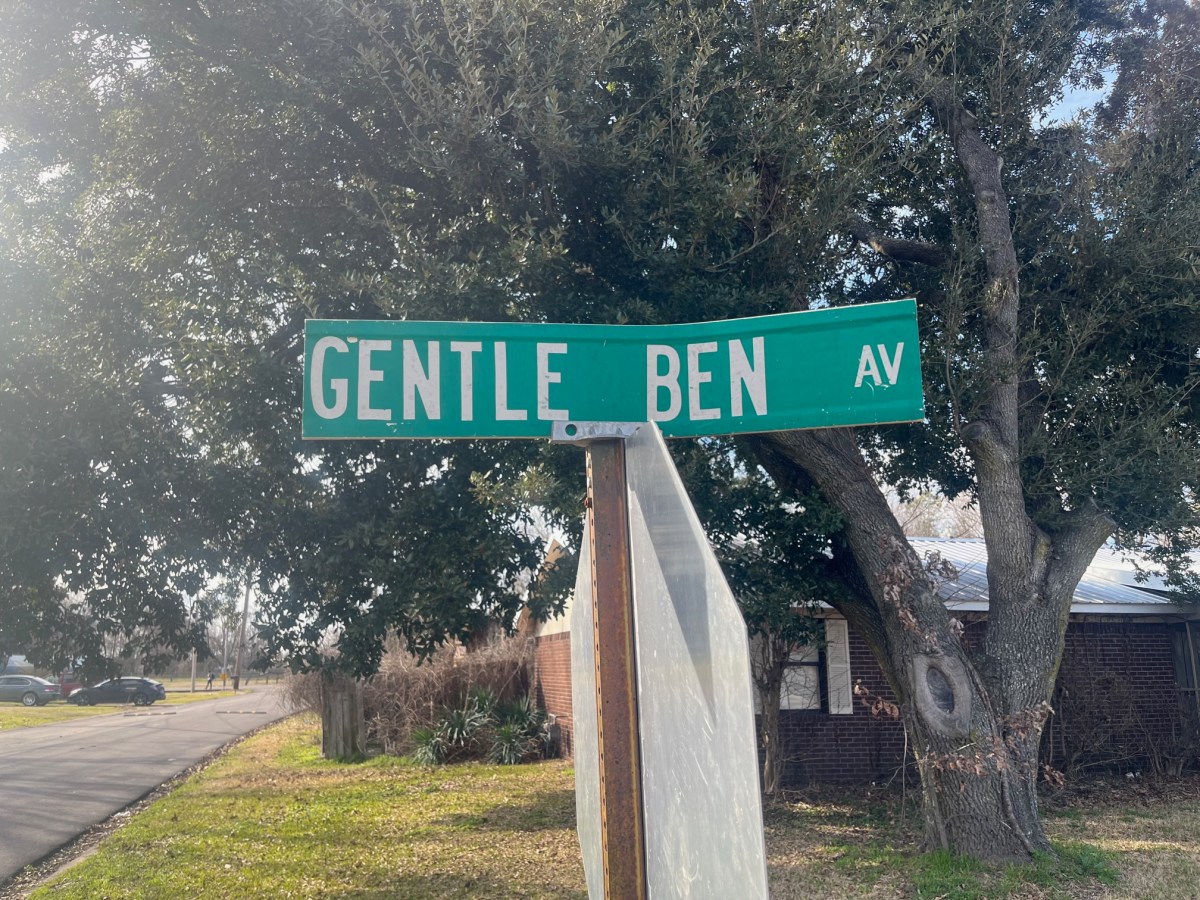
Our tour guide suggests a ride around Yazoo. He wants to show us where Fletcher grew up in an area neighborhood called Jonestown. We take River Road, which runs along side the Yazoo River, for which the town is named. We are actually searching for Fletcher Cox Street, going slowly by the street signs until we pass Gentle Ben Street named for Gentle Ben Williams, another remarkable defensive lineman from Yazoo, the first Black football player at Ole Miss and a 10-year star with the Buffalo Bills. Turns out, Ben Williams and Fletcher Cox grew up in the same neighborhood, only a few streets apart. That has to set records for defensive tackles per capita.
“I got a lot of my best players from Jonestown,” Tony says.
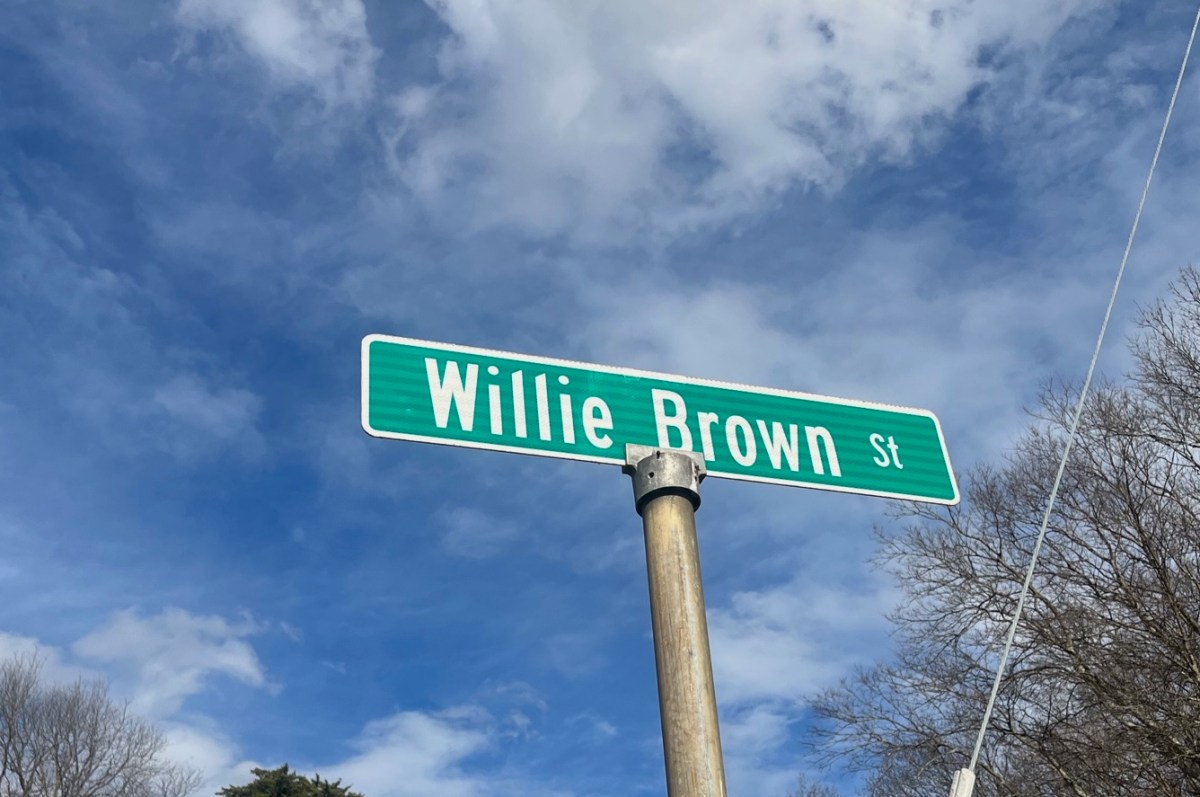
I tell Tony that Willie Morris used to tell me about the Brickyard Hill neighborhood, where Willie Brown grew up and where Mushroom Street has become Willie Brown Street. We head that way and I quickly learn where the “half hills” of Yazoo City are. Willie Brown Street tops one of the biggest hills.
Brown, who played for the legendary Eddie Robinson at Grambling, made one of the most iconic plays in Super Bowl history 45 years ago. That’s when he intercepted Fran Tarkenton’s pass and returned it 75 yards for a game-clinching touchdown in the Raiders’ victory over the Minnesota Vikings.
Says Tony Woolfolk, “When I was growing up, Willie was everybody’s hero in Yazoo City. I played in football shoes that Willie Brown sent home to us. They were shoes that the Raiders had already used, but they were like brand new to us. We were playing NFL shoes. It meant the world to us.”
Tony makes another stop on the way back to the school. We’re at the Yazoo middle school, that sits in what used to be a public park in the early 1900s, Tony says. “Take a look at that sign over there,” Tony says.
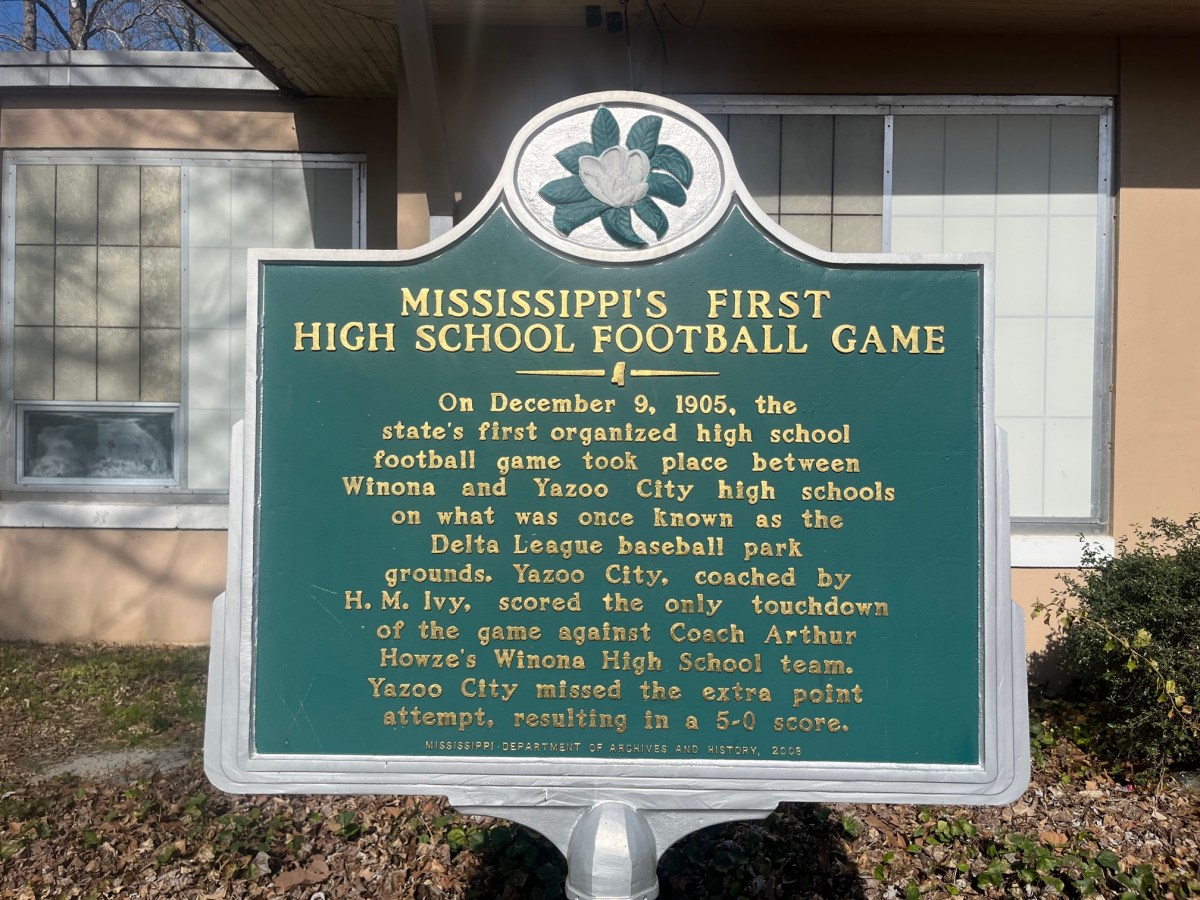
So I do, and it commemorates the site of Mississippi’s first organized high school football game played in 1905. Yazoo City won, of course, beating Winona 5-0.
There’s just so much football history here in Yazoo. We haven’t even mentioned the Heidel brothers (Jimmy, Ray and Roy) of Ole Miss fame; Houston Hoover (Jackson State), who played seven years in the NFL for three different teams; Elex Price (Alcorn State), an eight-year pro with the New Orleans Saints; or Gov. Haley Barbour, who played both football and baseball for the Yazoo Indians. We could go on and on, but it’s time to go and Tony has a basketball game that evening.
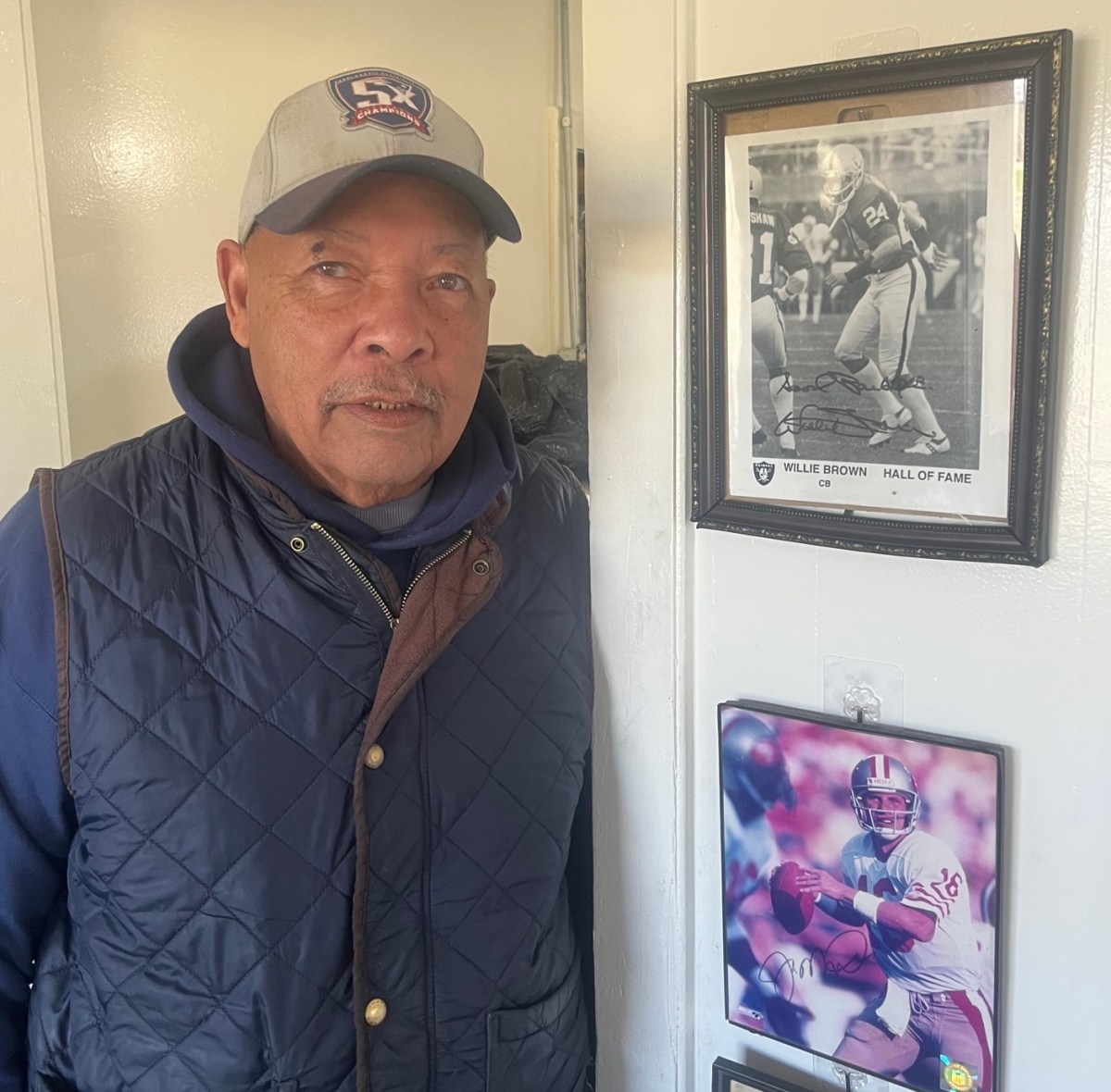
I head back south toward Jackson, more than little hungry from all the sight-seeing. So I stop at the Hall of Fame Restaurant , a little spot I’ve long heard about on the east side of U.S. 49 in an area known as Little Yazoo. There, I am greeted by David Brown, who happens to be Willie Brown’s older brother and the proprietor. The resemblance between David and his younger brother is startling.
I ask him, “Did you play football, too?”
“Man, I taught Willie how to play,” David says, smiling.
“Hungry?” he asks.
“Starving,” I said.
He shows me the menu, and there it is right there at the top. I order the Willie Brown Burger. Five minutes later, I get it, the biggest and surely one of the best burgers I’ve ever encountered. I tell David you could do bicep curls with that hamburger.
He smiles. “You ain’t gonna be hungry for a while,” he says.
And he is right. I leave, sated both on the Willie Brown Burger and rich Yazoo history.
This article first appeared on Mississippi Today and is republished here under a Creative Commons license.
Did you miss our previous article…
https://www.biloxinewsevents.com/?p=207891
Mississippi Today
Early voting proposal killed on last day of Mississippi legislative session
Mississippi will remain one of only three states without no-excuse early voting or no-excuse absentee voting.
Senate leaders, on the last day of their regular 2025 session, decided not to send a bill to Gov. Tate Reeves that would have expanded pre-Election Day voting options. The governor has been vocally opposed to early voting in Mississippi, and would likely have vetoed the measure.
The House and Senate this week overwhelmingly voted for legislation that established a watered-down version of early voting. The proposal would have required voters to go to a circuit clerk’s office and verify their identity with a photo ID.
The proposal also listed broad excuses that would have allowed many voters an opportunity to cast early ballots.
The measure passed the House unanimously and the Senate approved it 42-7. However, Sen. Jeff Tate, a Republican from Meridian who strongly opposes early voting, held the bill on a procedural motion.
Senate Elections Chairman Jeremy England chose not to dispose of Tate’s motion on Thursday morning, the last day the Senate was in session. This killed the bill and prevented it from going to the governor.
England, a Republican from Vancleave, told reporters he decided to kill the legislation because he believed some of its language needed tweaking.
The other reality is that Republican Gov. Tate Reeves strongly opposes early voting proposals and even attacked England on social media for advancing the proposal out of the Senate chamber.
England said he received word “through some sources” that Reeves would veto the measure.
“I’m not done working on it, though,” England said.
Although Mississippi does not have no-excuse early voting or no-excuse absentee voting, it does have absentee voting.
To vote by absentee, a voter must meet one of around a dozen legal excuses, such as temporarily living outside of their county or being over 65. Mississippi law doesn’t allow people to vote by absentee purely out of convenience or choice.
Several conservative states, such as Texas, Louisiana, Arkansas and Florida, have an in-person early voting system. The Republican National Committee in 2023 urged Republican voters to cast an early ballot in states that have early voting procedures.
Yet some Republican leaders in Mississippi have ardently opposed early voting legislation over concerns that it undermines election security.
This article first appeared on Mississippi Today and is republished here under a Creative Commons license.
.
Mississippi Today
Mississippi Legislature approves DEI ban after heated debate
Mississippi lawmakers have reached an agreement to ban diversity, equity and inclusion programs and a list of “divisive concepts” from public schools across the state education system, following the lead of numerous other Republican-controlled states and President Donald Trump’s administration.
House and Senate lawmakers approved a compromise bill in votes on Tuesday and Wednesday. It will likely head to Republican Gov. Tate Reeves for his signature after it clears a procedural motion.
The agreement between the Republican-dominated chambers followed hours of heated debate in which Democrats, almost all of whom are Black, excoriated the legislation as a setback in the long struggle to make Mississippi a fairer place for minorities. They also said the bill could bog universities down with costly legal fights and erode academic freedom.
Democratic Rep. Bryant Clark, who seldom addresses the entire House chamber from the podium during debates, rose to speak out against the bill on Tuesday. He is the son of the late Robert Clark, the first Black Mississippian elected to the state Legislature since the 1800s and the first Black Mississippian to serve as speaker pro tempore and preside over the House chamber since Reconstruction.
“We are better than this, and all of you know that we don’t need this with Mississippi history,” Clark said. “We should be the ones that say, ‘listen, we may be from Mississippi, we may have a dark past, but you know what, we’re going to be the first to stand up this time and say there is nothing wrong with DEI.'”
Legislative Republicans argued that the measure — which will apply to all public schools from the K-12 level through universities — will elevate merit in education and remove a list of so-called “divisive concepts” from academic settings. More broadly, conservative critics of DEI say the programs divide people into categories of victims and oppressors and infuse left-wing ideology into campus life.
“We are a diverse state. Nowhere in here are we trying to wipe that out,” said Republican Sen. Tyler McCaughn, one of the bill’s authors. “We’re just trying to change the focus back to that of excellence.”
The House and Senate initially passed proposals that differed in who they would impact, what activities they would regulate and how they aim to reshape the inner workings of the state’s education system. Some House leaders wanted the bill to be “semi-vague” in its language and wanted to create a process for withholding state funds based on complaints that almost anyone could lodge. The Senate wanted to pair a DEI ban with a task force to study inefficiencies in the higher education system, a provision the upper chamber later agreed to scrap.
The concepts that will be rooted out from curricula include the idea that gender identity can be a “subjective sense of self, disconnected from biological reality.” The move reflects another effort to align with the Trump administration, which has declared via executive order that there are only two sexes.
The House and Senate disagreed on how to enforce the measure but ultimately settled on an agreement that would empower students, parents of minor students, faculty members and contractors to sue schools for violating the law.
People could only sue after they go through an internal campus review process and a 25-day period when schools could fix the alleged violation. Republican Rep. Joey Hood, one of the House negotiators, said that was a compromise between the chambers. The House wanted to make it possible for almost anyone to file lawsuits over the DEI ban, while Senate negotiators initially bristled at the idea of fast-tracking internal campus disputes to the legal system.
The House ultimately held firm in its position to create a private cause of action, or the right to sue, but it agreed to give schools the ability to conduct an investigative process and potentially resolve the alleged violation before letting people sue in chancery courts.
“You have to go through the administrative process,” said Republican Sen. Nicole Boyd, one of the bill’s lead authors. “Because the whole idea is that, if there is a violation, the school needs to cure the violation. That’s what the purpose is. It’s not to create litigation, it’s to cure violations.”
If people disagree with the findings from that process, they could also ask the attorney general’s office to sue on their behalf.
Under the new law, Mississippi could withhold state funds from schools that don’t comply. Schools would be required to compile reports on all complaints filed in response to the new law.
Trump promised in his 2024 campaign to eliminate DEI in the federal government. One of the first executive orders he signed did that. Some Mississippi lawmakers introduced bills in the 2024 session to restrict DEI, but the proposals never made it out of committee. With the national headwinds at their backs and several other laws in Republican-led states to use as models, Mississippi lawmakers made plans to introduce anti-DEI legislation.
The policy debate also unfolded amid the early stages of a potential Republican primary matchup in the 2027 governor’s race between State Auditor Shad White and Lt. Gov. Delbert Hosemann. White, who has been one of the state’s loudest advocates for banning DEI, had branded Hosemann in the months before the 2025 session “DEI Delbert,” claiming the Senate leader has stood in the way of DEI restrictions passing the Legislature.
During the first Senate floor debate over the chamber’s DEI legislation during this year’s legislative session, Hosemann seemed to be conscious of these political attacks. He walked over to staff members and asked how many people were watching the debate live on YouTube.
As the DEI debate cleared one of its final hurdles Wednesday afternoon, the House and Senate remained at loggerheads over the state budget amid Republican infighting. It appeared likely the Legislature would end its session Wednesday or Thursday without passing a $7 billion budget to fund state agencies, potentially threatening a government shutdown.
“It is my understanding that we don’t have a budget and will likely leave here without a budget. But this piece of legislation …which I don’t think remedies any of Mississippi’s issues, this has become one of the top priorities that we had to get done,” said Democratic Sen. Rod Hickman. “I just want to say, if we put that much work into everything else we did, Mississippi might be a much better place.”
This article first appeared on Mississippi Today and is republished here under a Creative Commons license.
Mississippi Today
House gives Senate 5 p.m. deadline to come to table, or legislative session ends with no state budget
The House on Wednesday attempted one final time to revive negotiations between it and the Senate over passing a state budget.
Otherwise, the two Republican-led chambers will likely end their session without funding government services for the next fiscal year and potentially jeopardize state agencies.
The House on Wednesday unanimously passed a measure to extend the legislative session and revive budget bills that had died on legislative deadlines last weekend.
House Speaker Jason White said he did not have any prior commitment that the Senate would agree to the proposal, but he wanted to extend one last offer to pass the budget. White, a Republican from West, said if he did not hear from the Senate by 5 p.m. on Wednesday, his chamber would end its regular session.
“The ball is in their court,” White said of the Senate. “Every indication has been that they would not agree to extend the deadlines for purposes of doing the budget. I don’t know why that is. We did it last year, and we’ve done it most years.”
But it did not appear likely Wednesday afternoon that the Senate would comply.
The Mississippi Legislature has not left Jackson without setting at least most of the state budget since 2009, when then Gov. Haley Barbour had to force them back to set one to avoid a government shutdown.
The House measure to extend the session is now before the Senate for consideration. To pass, it would require a two-thirds majority vote of senators. But that might prove impossible. Numerous senators on both sides of the aisle vowed to vote against extending the current session, and Lt. Gov. Delbert Hosemann who oversees the chamber said such an extension likely couldn’t pass.
Senate leadership seemed surprised at the news that the House passed the resolution to negotiate a budget, and several senators earlier on Wednesday made passing references to ending the session without passing a budget.
“We’ll look at it after it passes the full House,” Senate President Pro Tempore Dean Kirby said.
The House and Senate, each having a Republican supermajority, have fought over many issues since the legislative session began early January.
But the battle over a tax overhaul plan, including elimination of the state individual income tax, appeared to cause a major rift. Lawmakers did pass a tax overhaul, which the governor has signed into law, but Senate leaders cried foul over how it passed, with the House seizing on typos in the Senate’s proposal that accidentally resembled the House’s more aggressive elimination plan.
The Senate had urged caution in eliminating the income tax, and had economic growth triggers that would have likely phased in the elimination over many years. But the typos essentially negated the triggers, and the House and governor ran with it.
The two chambers have also recently fought over the budget. White said he communicated directly with Senate leaders that the House would stand firm on not passing a budget late in the session.
But Senate leaders said they had trouble getting the House to meet with them to haggle out the final budget.
On the normally scheduled “conference weekend” with a deadline to agree to a budget last Saturday, the House did not show, taking the weekend off. This angered Hosemann and the Senate. All the budget bills died, requiring a vote to extend the session, or the governor forcing them into a special session.
If the Legislature ends its regular session without adopting a budget, the only option to fund state agencies before their budgets expire on June 30 is for Gov. Tate Reeves to call lawmakers back into a special session later.
“There really isn’t any other option (than the governor calling a special session),” Lt. Gov. Delbert Hosemann previously said.
If Reeves calls a special session, he gets to set the Legislature’s agenda. A special session call gives an otherwise constitutionally weak Mississippi governor more power over the Legislature.
This article first appeared on Mississippi Today and is republished here under a Creative Commons license.
-

 Mississippi Today2 days ago
Mississippi Today2 days agoPharmacy benefit manager reform likely dead
-

 News from the South - Alabama News Feed7 days ago
News from the South - Alabama News Feed7 days agoSevere storms will impact Alabama this weekend. Damaging winds, hail, and a tornado threat are al…
-

 News from the South - Alabama News Feed6 days ago
News from the South - Alabama News Feed6 days agoUniversity of Alabama student detained by ICE moved to Louisiana
-

 News from the South - Oklahoma News Feed5 days ago
News from the South - Oklahoma News Feed5 days agoTornado watch, severe thunderstorm warnings issued for Oklahoma
-

 News from the South - Virginia News Feed6 days ago
News from the South - Virginia News Feed6 days agoYoungkin removes Ellis, appoints Cuccinelli to UVa board | Virginia
-

 News from the South - Kentucky News Feed7 days ago
News from the South - Kentucky News Feed7 days agoA little early morning putting at the PGA Tour Superstore
-

 News from the South - Georgia News Feed5 days ago
News from the South - Georgia News Feed5 days agoGeorgia road project forcing homeowners out | FOX 5 News
-

 News from the South - West Virginia News Feed6 days ago
News from the South - West Virginia News Feed6 days agoHometown Hero | Restaurant owner serves up hope












































